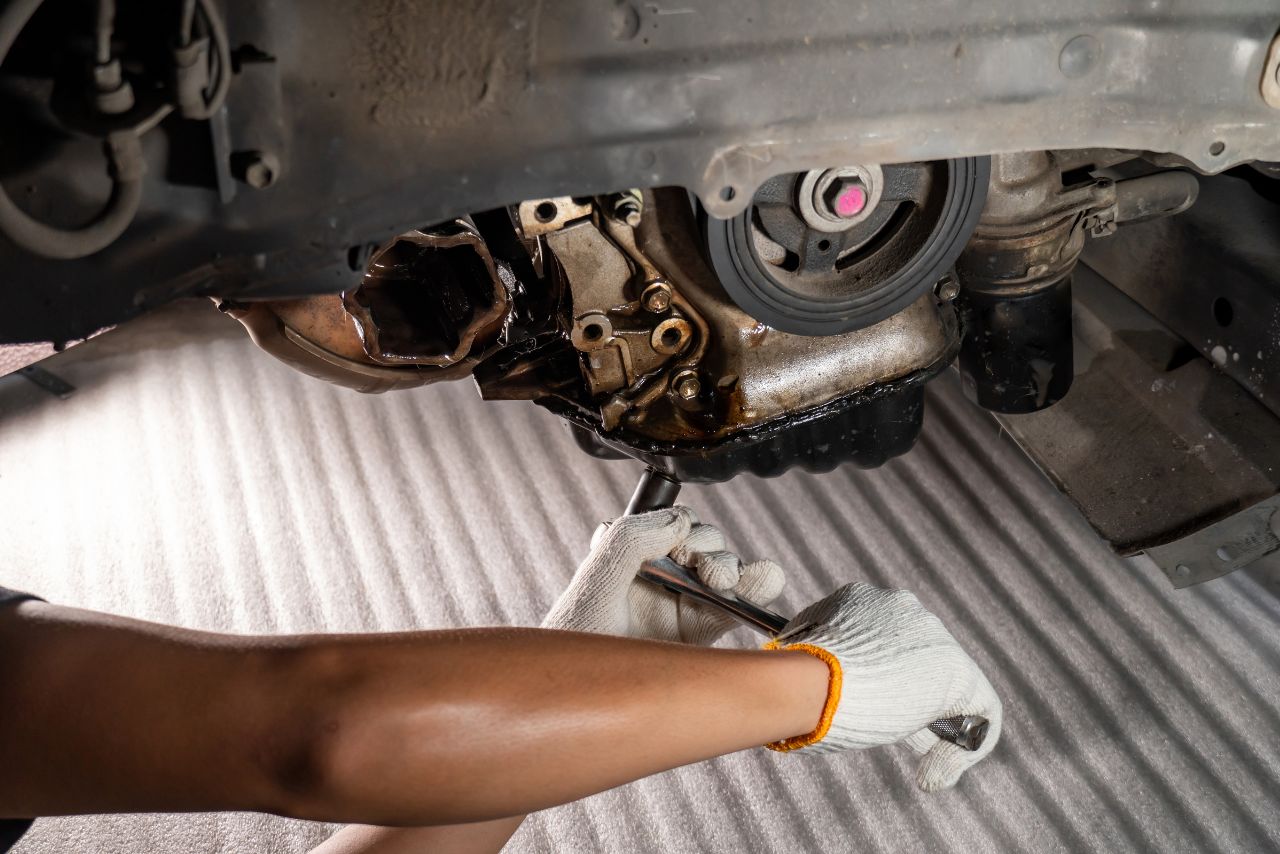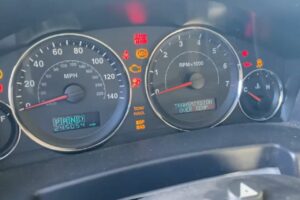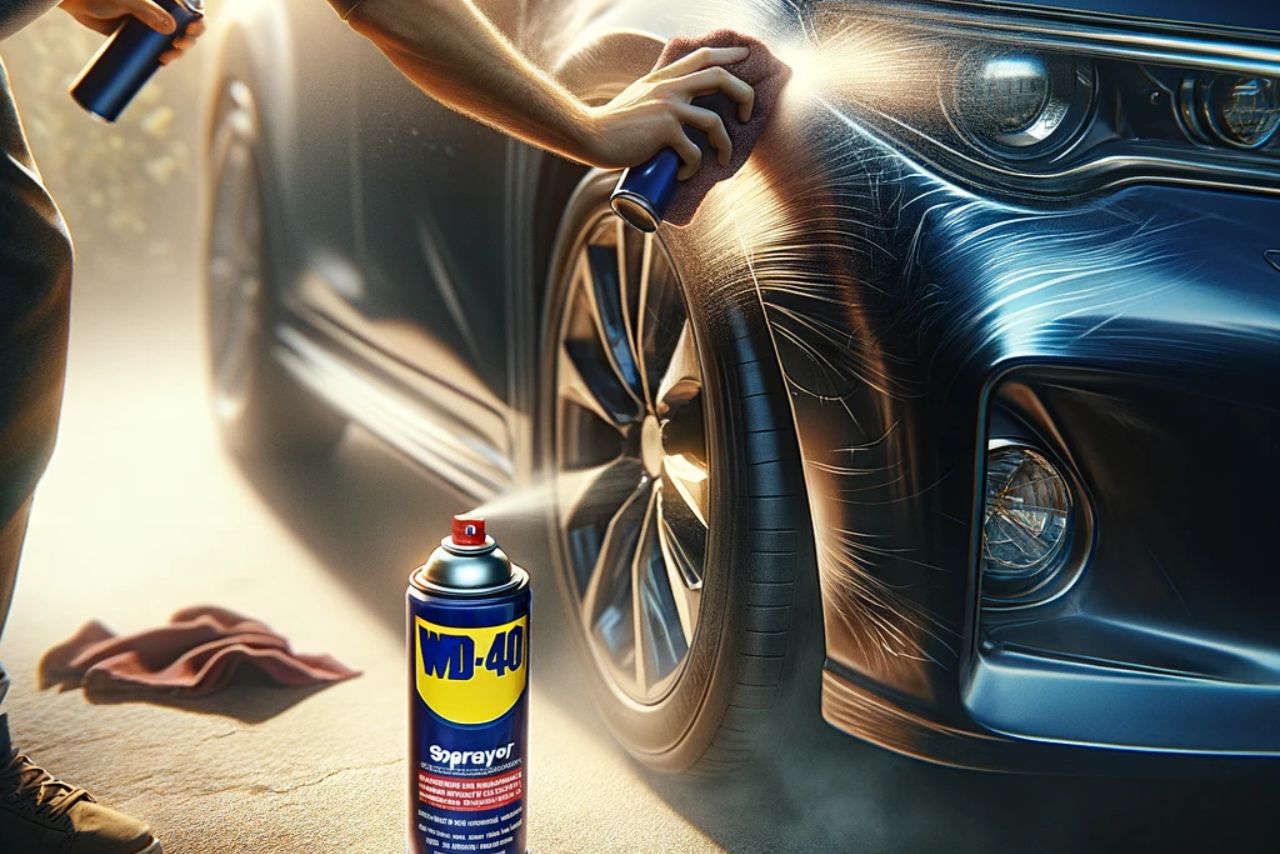If you’ve noticed that your car is losing oil but you can’t find any leaks or see any smoke, it can be quite puzzling. After all, where is the oil going? In this article, we will explore six possible reasons Why Your Car Losing Oil But No Leak or Smoke?
Possible reasons for car oil loss include internal engine leaks, burning oil due to worn-out components or excessive heat, a faulty PCV valve, clogged/malfunctioning oil filter, overfilled oil reservoir, and inaccurate oil level readings.
In this article, we will delve deeper into these potential causes and provide insights on how to identify and address the issue of oil loss in your car.
So, if you’re experiencing the frustrating situation of your car losing oil with no leaks or smoke, keep reading to uncover the possible reasons behind it.
Table of contents
Reasons for Car Losing Oil:
There can be several reasons why your car is losing oil without any apparent leaks or smoke. Let’s explore some possible causes:
Checking for Oil Leaks:
When your car is losing oil but there are no visible leaks or smoke, it can be quite puzzling.
However, there are a few things you can do to check for oil leaks and troubleshoot the issue. Here are some steps you can take:
Remember, if you’re not comfortable performing these checks yourself, it’s always a good idea to consult a professional mechanic. They have the expertise to diagnose and fix any oil leak issues properly.
| Checking for Oil Leaks |
|---|
| 1. Inspect the ground beneath your car |
| 2. Visually inspect the engine |
| 3. Check the oil level |
| 4. Inspect the oil filter |
| 5. Check the valve cover gasket |
| 6. Perform a compression test |
By following these steps, you can proactively identify potential oil leaks and address them before they become more significant problems.
Regular maintenance and timely repairs are essential to keep your car running smoothly and prevent any long-term damage.
Understanding Oil Smoke:

Oil smoke is a common issue faced by car owners, often causing confusion and concern.
When you notice your car losing oil but can’t find any leaks or see smoke, it can be frustrating trying to figure out what’s going on.
In this section, we will discuss what oil smoke is, why it occurs, and what it could mean for your vehicle.
What is oil smoke?
Oil smoke refers to the emission of smoke from the exhaust pipe that is caused by burning oil.
This smoke is typically bluish-gray in color and has a distinct smell. It can be visible during acceleration, deceleration, or even at idle.
Why does oil smoke occur?
There are a few reasons why your car might be emitting oil smoke without any visible leaks:
What does oil smoke mean for your vehicle?
Oil smoke is not a problem that should be ignored as it could indicate underlying issues with your engine.
It may be a sign of excessive oil consumption, engine wear, or other internal problems. If left unaddressed, it can lead to further damage and costly repairs down the line.
In conclusion, oil smoke is a symptom that should be taken seriously. If you notice your car losing oil but can’t find any leaks or see smoke, it’s advisable to have your vehicle inspected by a qualified mechanic.
They can diagnose the problem and recommend the necessary repairs to keep your car running smoothly.
| Worn piston rings | Oil enters combustion chamber |
| Valve stem seals | Oil leaks into combustion chamber |
| PCV system issues | Malfunctioning PCV valve or components |
Possible Causes of Oil Consumption:

There can be several reasons why your car is losing oil without any visible leaks or smoke. Let’s explore some possible causes:
It’s important to note that these are just potential causes and a professional inspection is recommended to accurately diagnose the issue.
Regular maintenance and addressing any potential oil leaks promptly can help prevent excessive oil consumption. Remember, a well-maintained engine is a happy engine!
| Possible Causes of Oil Consumption |
|---|
| Worn Piston Rings |
| Faulty Valve Stem Seals |
| PCV System Malfunction |
| Oil Pan Gasket Leak |
| Oil Filter Housing Leak |
| Engine Oil Cooler Leak |
Regular Maintenance Tips:
Taking good care of your car is essential to ensure its longevity and prevent any potential issues.
Regular maintenance not only helps in keeping your car running smoothly but also allows you to identify and address any oil-related problems before they become major headaches.
Here are a few tips to help you maintain your car’s oil levels without any leaks or smoke:
Remember, proper maintenance and regular inspections can help you catch any potential oil-related issues early on.
If you are unsure about any maintenance tasks or suspect a problem, it’s always best to consult a professional mechanic to ensure the health and performance of your car.
| Maintenance Tips |
|---|
| Check oil regularly |
| Use the right oil |
| Inspect the oil filter |
| Check for oil leaks |
| Monitor coolant levels |
Signs of Engine Damage:
When your car loses oil without any visible leaks or smoke, it could be a sign of engine damage. Here are some key indicators to look out for:
The signs mentioned above are not definitive proof of engine damage, but they should serve as warning signals. If you observe any of these signs, it is crucial to have your car inspected by a qualified mechanic.
They will be able to diagnose the issue accurately and recommend the necessary repairs to prevent further damage.
Remember, regular maintenance and timely repairs can help prolong the life of your engine and keep your car running smoothly.
Conclusion and final thoughts 💭
If your car is losing oil but there is no visible leak or smoke, it can be a bit puzzling. However, there are several reasons that could explain this phenomenon. Let’s recap the six possible causes we discussed earlier:
- Engine Burning Oil: If your car has high mileage or worn-out piston rings, it may burn oil internally, leading to oil loss without any visible signs.
- Valve Cover Gasket Leak: A faulty valve cover gasket can cause oil to seep out slowly, evaporating before it hits the ground.
- Oil Pan Gasket Leak: Similar to the valve cover gasket, a leak in the oil pan gasket can result in oil loss without any noticeable drips.
- Faulty PCV Valve: A malfunctioning Positive Crankcase Ventilation (PCV) valve can cause excess pressure in the engine, leading to oil leaks or consumption.
- Worn-out Oil Seals: Over time, the seals in your engine can deteriorate, allowing oil to escape without leaving any visible traces.
- Oil Filter Leak: Sometimes, the oil filter can develop a small crack or a faulty seal, causing oil to leak out slowly over time.
While it’s essential to investigate the issue further if you notice a significant drop in oil levels, it’s also important not to panic.
In many cases, the oil loss is gradual and could be within the normal range of consumption.
If you suspect your car is losing oil but can’t find any leaks, it’s advisable to consult a qualified mechanic. They can diagnose the problem accurately and provide the necessary repairs or maintenance.
Regular oil checks and routine maintenance can also help prevent unforeseen issues and ensure your car’s engine stays healthy.
Latest Posts:
- Can WD-40 Remove Scratches on Cars? (Hint: Yes, but…)
- Can You Use a Drill to Polish Your Car? (We Tried it Out!)
- Should You Cover Car Scratches With Stickers? (REVEALED!)
- Buick Service Stabilitrak: (Causes & 100% Guaranteed Fix!)
- Common Holden Trax Problems (Causes & 100% Proven Fixes!)
- Jeep Commander Transmission Over Temp: (Guaranteed Fix!)











Leave a Reply